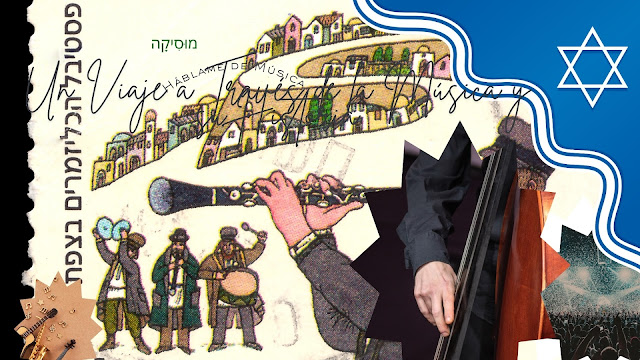Klezmer: A Journey Through Jewish Music and Its History
- כלי (kli): meaning “instrument” or “tool”.
- זמר (zemer): meaning “song” or “melody.”
This musical tradition lives on today, celebrated at festivals and events around the world, carrying with it the legacy of a vibrant and resilient culture.
Here's a quiz about klezmer, based on the information on this page. This quiz includes multiple-choice and short-answer questions to assess your knowledge of klezmer music and its history.
Here's the translation of the quiz into English:
Klezmer Quiz
Multiple Choice Questions
What does the word "Klezmer" mean?
A) Love song
B) Musical instrument
C) Festive celebration
D) Traditional dance
Correct answer: B) Musical instrument
From which language does the term "Klezmer" originate?
A) Hebrew
B) Yiddish
C) Polish
D) Russian
Correct answer: B) Yiddish
What is the main historical context of klezmer music?
A) Music of the European court
B) Musical tradition of Ashkenazi Jews in Eastern Europe
C) Protest music
D) Music of the African diaspora
Correct answer: B) Musical tradition of Ashkenazi Jews in Eastern Europe
In what type of celebrations was klezmer music traditionally played?
A) Funerals
B) Weddings and festivities
C) Religious ceremonies
D) Classical music concerts
Correct answer: B) Weddings and festivities
When did the term "klezmer" begin to be used to refer to the music itself?
A) Early 20th century
B) Second half of the 20th century
C) 19th century
D) 21st century
Correct answer: B) Second half of the 20th century
Short Answer Questions
Explain the linguistic origin of the word "Klezmer."
Expected answer: The term "Klezmer" comes from the Yiddish קלעזמער (klezmer) and is formed from two Hebrew words: כלי (kli), meaning “instrument” or “tool,” and זמר (zemer), meaning “song” or “melody.” Therefore, the literal meaning is "musical instrument" or "instrument of song."
How has the meaning of "Klezmer" evolved over time?
Expected answer: Initially, "Klezmer" referred to the musical instruments used by musicians. Over time, it began to refer to the musicians who played these instruments, and finally, in the second half of the 20th century, it came to describe the musical style itself.
Describe the cultural impact of klezmer music on Jewish communities in Eastern Europe.
Expected answer: Klezmer music reflects the history and culture of Jewish communities in Eastern Europe. Through its melodies, it conveys stories of love, loss, and hope, connecting past generations with the present and serving as a vehicle for cultural and emotional expression.
Instructions
Duration: 20 minutes
Scoring: Each multiple-choice question is worth 1 point, and short answer questions will be assessed based on clarity and accuracy of the response.
Enjoy the quiz and learn more about the fascinating world of Klezmer!
OTHER TOPICS ON KLEZMER
- Klezmer Music
- History of Klezmer
- Origin of Klezmer
- Klezmer Instruments
- Jewish Folk Music
- Ashkenazi Music
- Klezmer Traditions
- Klezmer Culture
- Klezmer Musicians
- Klezmer Celebrations
- Yiddish Music
- Klezmer Weddings
- Klezmer Melodies
- Eastern European Jewish Music
- Evolution of Klezmer
- Klezmer Bands
- Klezmer Festivals
- Klezmer Dance
- Klezmer Songs
- Klezmer Heritage















No comments:
Post a Comment